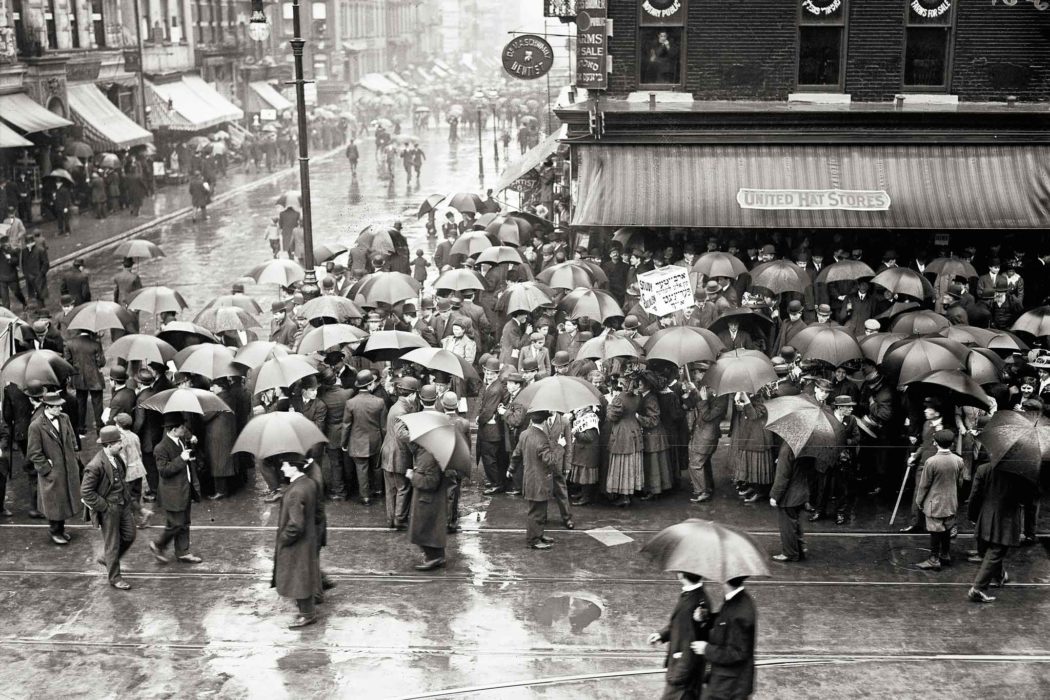“ARE YOU HAPPY?”
‘Abdu’l-Bahá was known to spring this disarming question on unsuspecting Americans. They had agreed to “life, liberty, and the pursuit of happiness” when declaring their independence from rainy England. Happiness, it seemed, was an important instrument in ‘Abdu’l-Bahá’s repertoire.
On June 19, 1912, he tried it out again in New York. Mrs. Hinkle Smith came from a well-off family in Philadelphia. Her husband, William Hinkle Smith, was the director of a large copper mining outfit. When she first met ‘Abdu’l-Bahá, she had asked him to give her a Persian name. He called her Tábandih, which means “Light-Giver.”
On June 19, 1912, he tried it out again in New York. Mrs. Hinkle Smith came from a well-off family in Philadelphia. Her husband, William Hinkle Smith, was the director of a large copper mining outfit. When she first met ‘Abdu’l-Bahá, she had asked him to give her a Persian name. He called her Tábandih, which means “Light-Giver.”
Today she had a headache.
After suggesting a particular type of medicine, ‘Abdu’l-Bahá offered an additional remedy. “You must always be happy,” he said. “You must associate with joyous and happy people . . . . Happiness has a direct influence in preserving our health, while being upset causes illness.”[1]
But ‘Abdu’l-Bahá’s philosophy on happiness ran deeper than platitudes or sentimentality. “The basis of eternal happiness,” he said, “is spirituality and divine virtue, which is not followed by sorrow. But physical happiness is subject to a thousand changes and vicissitudes.”

By the time ‘Abdu’l-Bahá arrived in America in 1912, his physical health had been worn down by a lifetime of oppression. “Abdul Baha Abbas is now nearly 68 years of age,” one reporter observed, “but forty years in a Turkish prison have made him appear of greater age.” He had been in a constant state of exile, imprisonment, and house arrest from the time he was eight years old.[1] Yet, as much as he was known for his grace and fortitude during those years, he was also known for his positive outlook.
“Anybody can be happy in the state of comfort, ease, health, success, pleasure and joy,” he later wrote, “but if one will be happy and contented in the time of trouble, hardship and prevailing disease, it is the proof of nobility.”
On April 12, 1912, the Reverend Howard Colby Ives sat opposite ‘Abdu’l-Bahá, next to the bay window in his suite at the Hotel Ansonia in New York. They remained in silence a long while, then Ives broke down in tears. He later recalled the occasion: “He wiped the tears from my face; admonishing me not to cry, that one must always be happy.” Then came the disarming part. “And He laughed. Such a ringing, boyish laugh. It was as though He had discovered the most delightful joke imaginable: a divine joke which only He could appreciate.”
Another American, Stanwood Cobb, wrote: “This philosophy of joy was the keynote of all of ‘Abdu’l-Bahá’s teaching.” But, Cobb added, “Those who were unhappy (and who of us are not at times!) would weep at this. And ‘Abdu’l-Bahá would smile as if to say, ‘Yes, weep on. Beyond the tears is sunshine.’”






